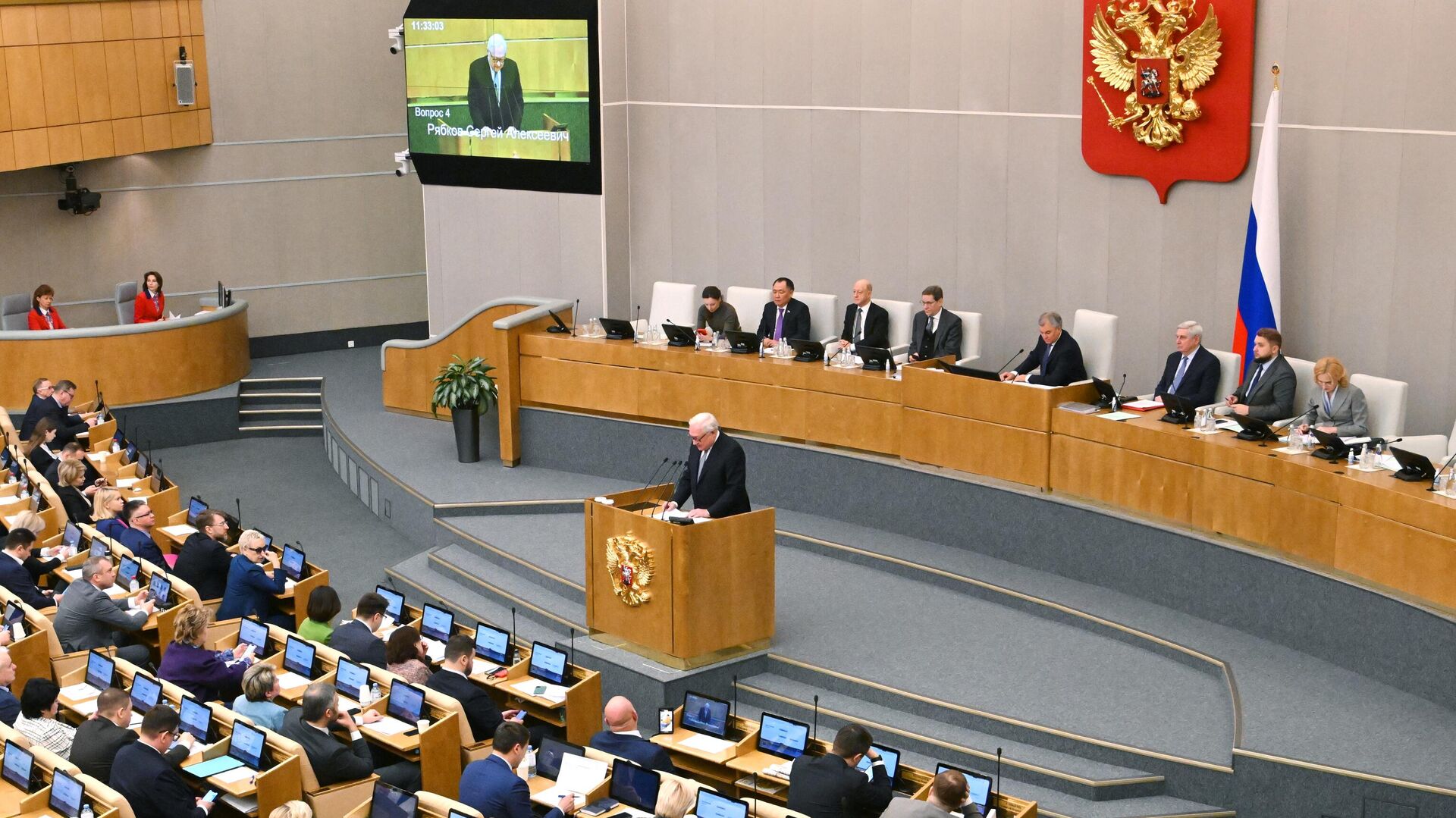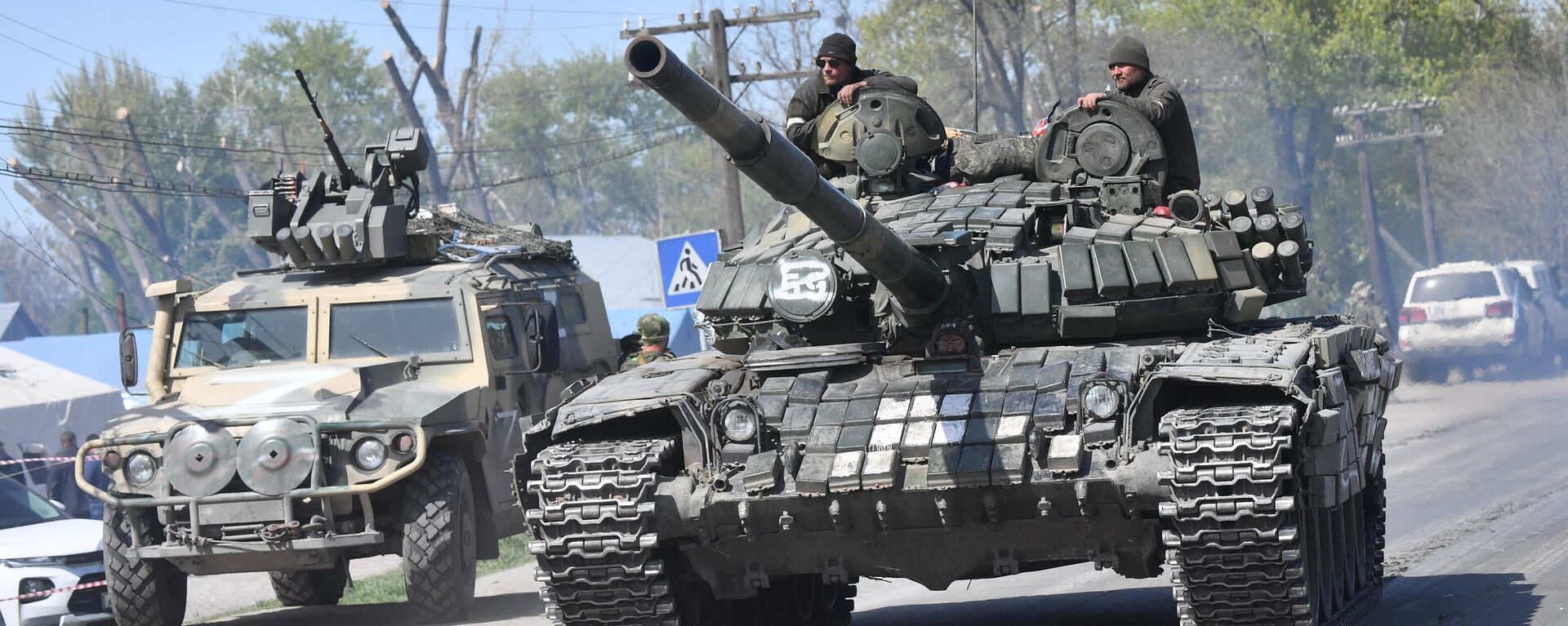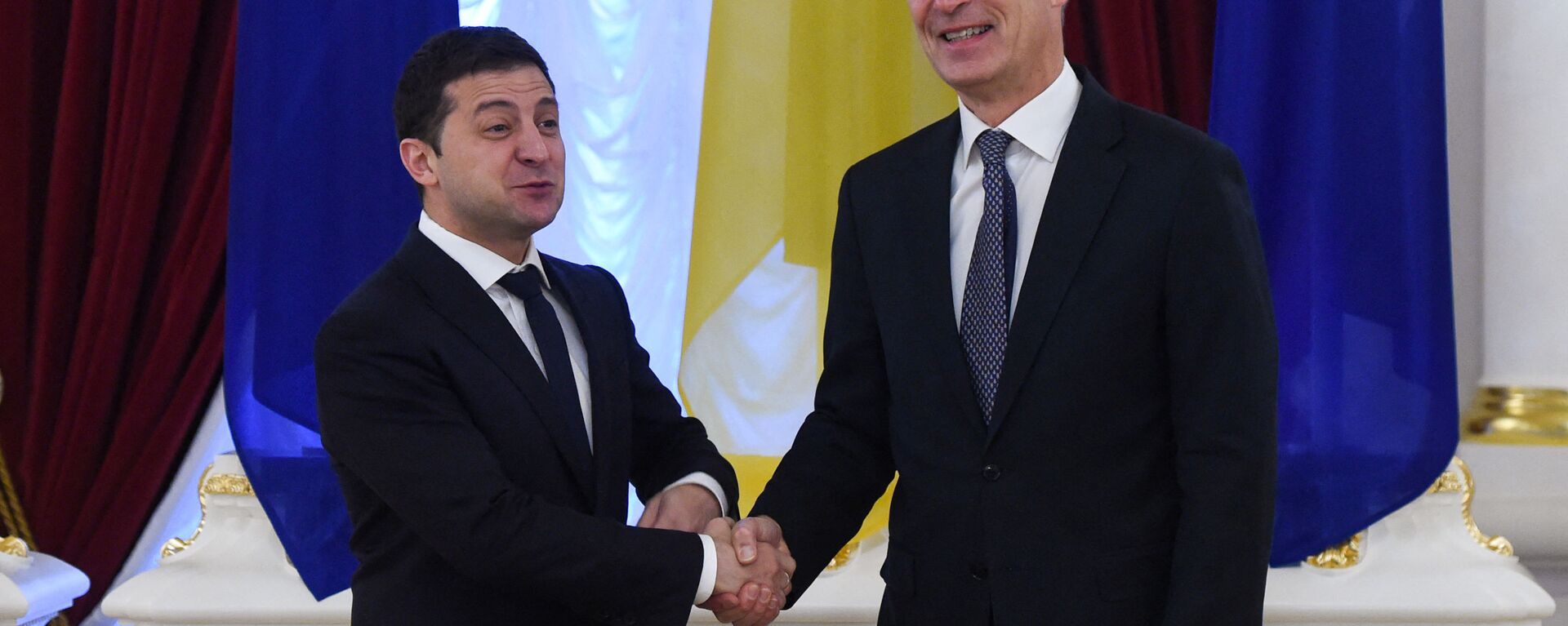https://en.sputniknews.africa/20230511/treaty-on-cfe-outdated-due-to-western-actions-russian-foreign-ministry-says-1059174221.html
Treaty on CFE Outdated Due to Western Actions, Russian Foreign Ministry Says
Treaty on CFE Outdated Due to Western Actions, Russian Foreign Ministry Says
Sputnik Africa
The Treaty on CFE has become a relic of the past as military-political situation in Europe has worsened due to actions of West, and, Russian Deputy Foreign Minister Sergey Ryabkov said on Wednesday.
2023-05-11T09:06+0200
2023-05-11T09:06+0200
2023-08-03T10:48+0200
russia
europe
treaty on conventional armed forces in europe (cfe)
treaty
north atlantic treaty organization (nato)
russian foreign ministry
international
https://cdn1.img.sputniknews.africa/img/07e7/05/0b/1059174651_0:131:3069:1857_1920x0_80_0_0_8aae4da24c72c802d073bffa119517a4.jpg
The Treaty on CFE has become a relic of the past as the military-political situation in Europe has worsened due to actions of the West, Russian Deputy Foreign Minister Sergey Ryabkov said on Wednesday.He stressed that the recent events – the applications of Helsinki and Stockholm for membership in NATO, the admission of Finland to the alliance and the conclusion of an agreement with the United States, which creates the basis for the deployment of American forces on Finnish territory – have significantly worsened the military-political situation in Europe. Under such conditions, he said, the CFE Treaty "has finally become a relic of the past." Ryabkov recalled that in 2004 the State Duma, ratifying the agreement on the adaptation of the CFE Treaty, adopted a statement that reflects the opinion of deputies on a number of issues related to the agreement. He noted that these circumstances, in particular, include a "radical change in the military-political situation" in comparison with its state in 2004, adding that "obviously, the time to take such measures came." Earlier, the leader of the Liberal Democratic Party and the head of the Duma Committee on International Affairs, Leonid Slutsky, said that the draft on the denunciation of the CFE Treaty could be considered by the chamber on May 16. The Treaty on Conventional Armed Forces in Europe (CFE) was signed in Paris in 1990 by the representatives of 16 NATO member states and six countries of the Warsaw Pact Organization (WTO) - the USSR, Bulgaria, Hungary, Poland, Romania and Czechoslovakia. It entered into force on November 9, 1992. The treaty established limits on armaments and military equipment for NATO and Warsaw Pact countries. The restrictions concerned key categories such as conventional military equipment, including the number of battle tanks, armored vehicles, artillery, attack helicopters and combat aircraft. The agreement also provided for the annual exchange of information on the armed forces of the parties, as well as measures for verifying the information provided and compliance with its provisions through inspections.However, with the demise of the Warsaw Pact, and then the USSR, and especially with the expansion of NATO, when the former countries of the Warsaw Pact and the republics of the USSR entered the North Atlantic Alliance, the treaty mechanisms designed to maintain a balance of power between the two military-political alliances began to lose its meaning.As a result of NATO expansion, the bloc exceeded the levels set for it by the Treaty in terms of the number of weapons and equipment. Under these conditions, at the initiative of Russia, the Adapted Conventional Armed Forces in Europe Treaty was developed. The document was signed in 1999 in Istanbul by representatives of 30 states. The Adapted Treaty was ratified by only four countries – Russia, Belarus, Kazakhstan and Ukraine, but none of the NATO countries did so.Almost immediately after the signing of the Adapted Treaty, the NATO countries started to drag out the process of putting this document into effect. In addition, the member states ignored specific Russian proposals to bring the CFE out of the crisis, promising to discuss them later, after the entry into force of the Adapted Treaty. In addition, a number of countries that were not previously included in the CFE Treaty, namely Latvia, Lithuania, Estonia, Slovenia, Albania and Croatia, refused to join the CFE Treaty.In 2007, Russia suspended its participation in the CFE Treaty "until the NATO countries ratify the agreement on adaptation and start to implement this document."
https://en.sputniknews.africa/20230510/russia-to-denounce-treaty-on-conventional-armed-forces-in-europe-1059155180.html
https://en.sputniknews.africa/20230421/all-nato-allies-agree-that-ukraine-should-join-alliance-nato-head-says-1058746045.html
russia
europe
Sputnik Africa
feedback@sputniknews.com
+74956456601
MIA „Rossiya Segodnya“
2023
Sputnik Africa
feedback@sputniknews.com
+74956456601
MIA „Rossiya Segodnya“
News
en_EN
Sputnik Africa
feedback@sputniknews.com
+74956456601
MIA „Rossiya Segodnya“
Sputnik Africa
feedback@sputniknews.com
+74956456601
MIA „Rossiya Segodnya“
russian foreign ministry, europe, the treaty on conventional armed forces in europe (cfe), nato, nato expansion, military equipment
russian foreign ministry, europe, the treaty on conventional armed forces in europe (cfe), nato, nato expansion, military equipment
Treaty on CFE Outdated Due to Western Actions, Russian Foreign Ministry Says
09:06 11.05.2023 (Updated: 10:48 03.08.2023) Earlier this week, Russian President Vladimir Putin proposed a law denouncing the treaty on Conventional Armed Forces in Europe (CFE) to the lower house of the parliament.
The Treaty on CFE has become a
relic of the past as the military-political situation in Europe has worsened due to actions of the West, Russian Deputy Foreign Minister Sergey Ryabkov said on Wednesday.
"The treaty, signed in 1990 and entered into force in 1992, is very outdated. The agreement on its adaptation, initiated by Russia and signed in 1999, never entered into force due to the destructive position of the United States and other NATO countries. The members of the alliance actually circumvented the provisions of the CFE Treaty in the process of its expansion to the east. Therefore, we were forced to suspend the treaty in 2007. At the same time, we left the door open, giving the Western countries an opportunity to change their minds, to show common sense[...] but the situation has not improved," Ryabkov said, as quoted by the Russian Foreign Ministry.
He stressed that the recent events – the applications of Helsinki and Stockholm for membership in NATO, the admission of
Finland to the alliance and the conclusion of an agreement with the United States, which creates the basis for the deployment of American forces on Finnish territory – have significantly worsened the military-political situation in Europe. Under such conditions, he said, the CFE Treaty "has finally become a relic of the past."
Ryabkov recalled that in 2004 the State Duma, ratifying the agreement on the adaptation of the CFE Treaty, adopted a statement that reflects the opinion of deputies on a number of issues related to the agreement.
"It, in particular, stated that under exceptional circumstances that could jeopardize the supreme interests of the Russian Federation, the country could take political, diplomatic and other measures to eliminate such circumstances," he said.
He noted that these circumstances, in particular, include a "radical change in the military-political situation" in comparison with its state in 2004, adding that "obviously, the time to take such measures came."
Earlier, the leader of the Liberal Democratic Party and the head of the Duma Committee on International Affairs, Leonid Slutsky, said that the draft on the denunciation of the CFE Treaty could be considered by the chamber on May 16.
The Treaty on Conventional Armed Forces in Europe (CFE) was signed in Paris in 1990 by the representatives of 16 NATO member states and six countries of the Warsaw Pact Organization (WTO) - the USSR, Bulgaria, Hungary, Poland, Romania and Czechoslovakia. It entered into force on November 9, 1992.
The treaty established limits on armaments and military equipment for NATO and Warsaw Pact countries. The restrictions concerned key categories such as conventional military equipment, including the number of battle tanks, armored vehicles, artillery, attack helicopters and combat aircraft. The agreement also provided for the annual exchange of
information on the armed forces of the parties, as well as measures for verifying the information provided and compliance with its provisions through inspections.
However, with the demise of the Warsaw Pact, and then the USSR, and especially with the expansion of NATO, when the former countries of the Warsaw Pact and the republics of the USSR entered the North Atlantic Alliance, the treaty mechanisms designed to maintain a balance of power between the two military-political alliances began to lose its meaning.
As a result of NATO
expansion, the bloc exceeded the levels set for it by the Treaty in terms of the number of weapons and equipment. Under these conditions, at the initiative of Russia, the Adapted Conventional Armed Forces in Europe Treaty was developed. The document was signed in 1999 in Istanbul by representatives of 30 states. The Adapted Treaty was ratified by only four countries – Russia, Belarus, Kazakhstan and Ukraine, but none of the NATO countries did so.
Almost immediately after the signing of the Adapted Treaty, the NATO countries started
to drag out the process of putting this document into effect. In addition, the member states ignored specific Russian proposals to bring the CFE out of the crisis, promising to discuss them later, after the entry into force of the Adapted Treaty. In addition, a number of countries that were not previously included in the CFE Treaty, namely Latvia, Lithuania, Estonia, Slovenia, Albania and Croatia, refused to join the CFE Treaty.
In 2007, Russia suspended its participation in the CFE Treaty "until the NATO countries ratify the agreement on adaptation and start to implement this document."



